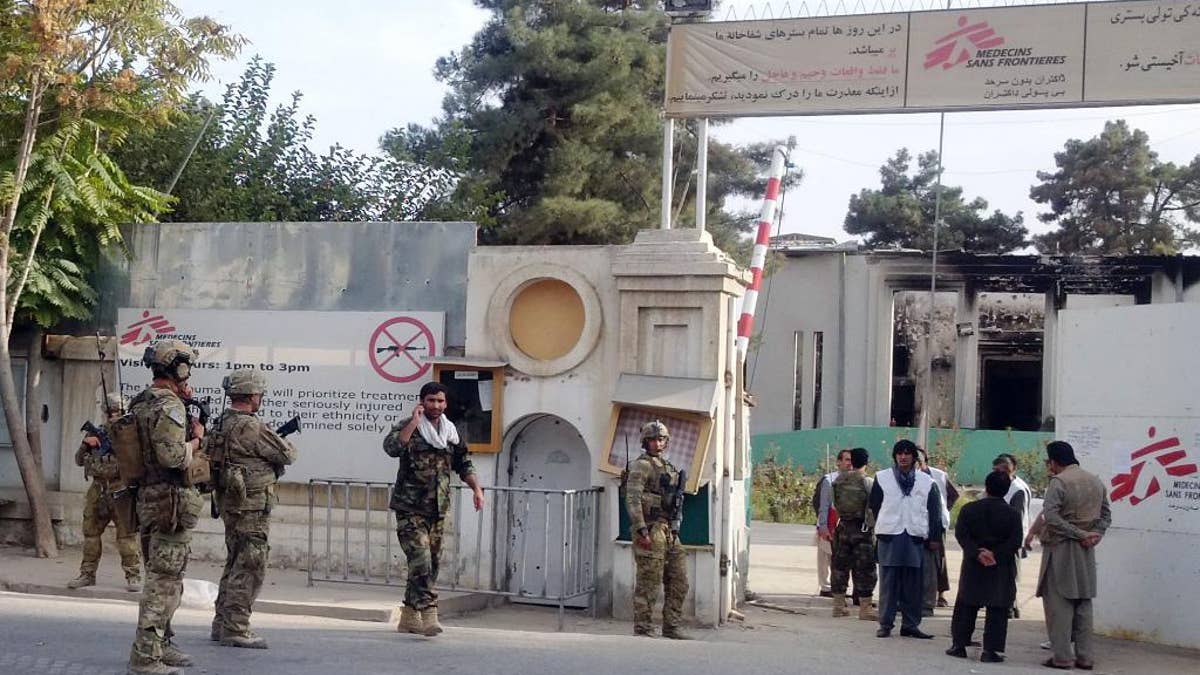
U.S. soldiers walk into the charred remains of the Doctors Without Borders hospital in Kunduz, Afghanistan, Thursday, Oct. 15, 2015. The attack, which killed a number of hospital staff and patients, was intended to back up Afghan forces fighting to dislodge Taliban insurgents who overran the strategic city earlier in the month. (Najim Rahim via AP) (The Associated Press)
PARIS (AP) -- The international medical aid agency Doctors Without Borders has pulled out of the first U.N. humanitarian summit, saying the meeting won't address the growing needs caused by war and violence across the world because of its non-binding nature.
Eighty governments and 45 world leaders are expected to attend the first World Humanitarian Summit in Istanbul on May 23-24. About 6,000 people, including 250 private sector leaders, heads of aid groups and representatives of civil society, affected communities and youth, will also take part in the summit.
But Doctors Without Borders, also known by its French acronym MSF, said in a statement Wednesday that it's pulling out "with considerable disappointment" because "we no longer have any hope that the (summit) will address the weaknesses in humanitarian action and emergency response, particularly in conflict areas or epidemic situations."
According to the international organization, the World Humanitarian Summit will be a missed opportunity.
"The summit neglects to reinforce the obligations of states to uphold and implement the humanitarian and refugee laws which they have signed up to," MSF said.
Insisting on the needs caused by violence in Syria, Yemen and South Sudan, the treatment of refugees and migrants or the Ebola epidemic, MSF said the meeting won't help improving assistance.
"In all of these situations, the responsibilities of states in their making, and the diminished capacity of the humanitarian system to respond causing yet more suffering and death, will go unaddressed," MSF said.
U.N. spokesman Stephane Dujarric rued the agency's decision, but insisted the summit is "clearly needed."
"I'd say it's disappointing because I think the summit was going to deal with a lot issues that are vital to MSF, and MSF traditionally presents a strong and influential voice," he said. "Whether that's preventing and ending conflict, accountability on the implementation of obligations under international humanitarian law, protection of civilians, protection of health workers and health facilities and unimpeded humanitarian access."
According to a pre-summit report in February by U.N. Secretary-General Ban Ki-moon, the cost of humanitarian aid for the 120 million people in need last year was $19.5 billion, an all-time high. Yet, despite record contributions, the gap between funds needed and donated widened "to a staggering 47 percent - $9.3 billion - in 2015," it said.
U.N. humanitarian chief Stephen O'Brien said earlier this week that the world has a shared responsibility to close the gap, which ought to be possible in a $78 trillion global economy, and that is the focus of the summit.







































